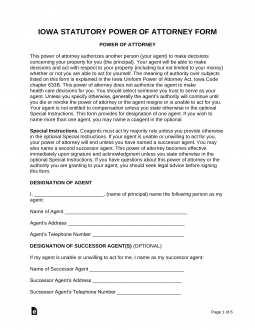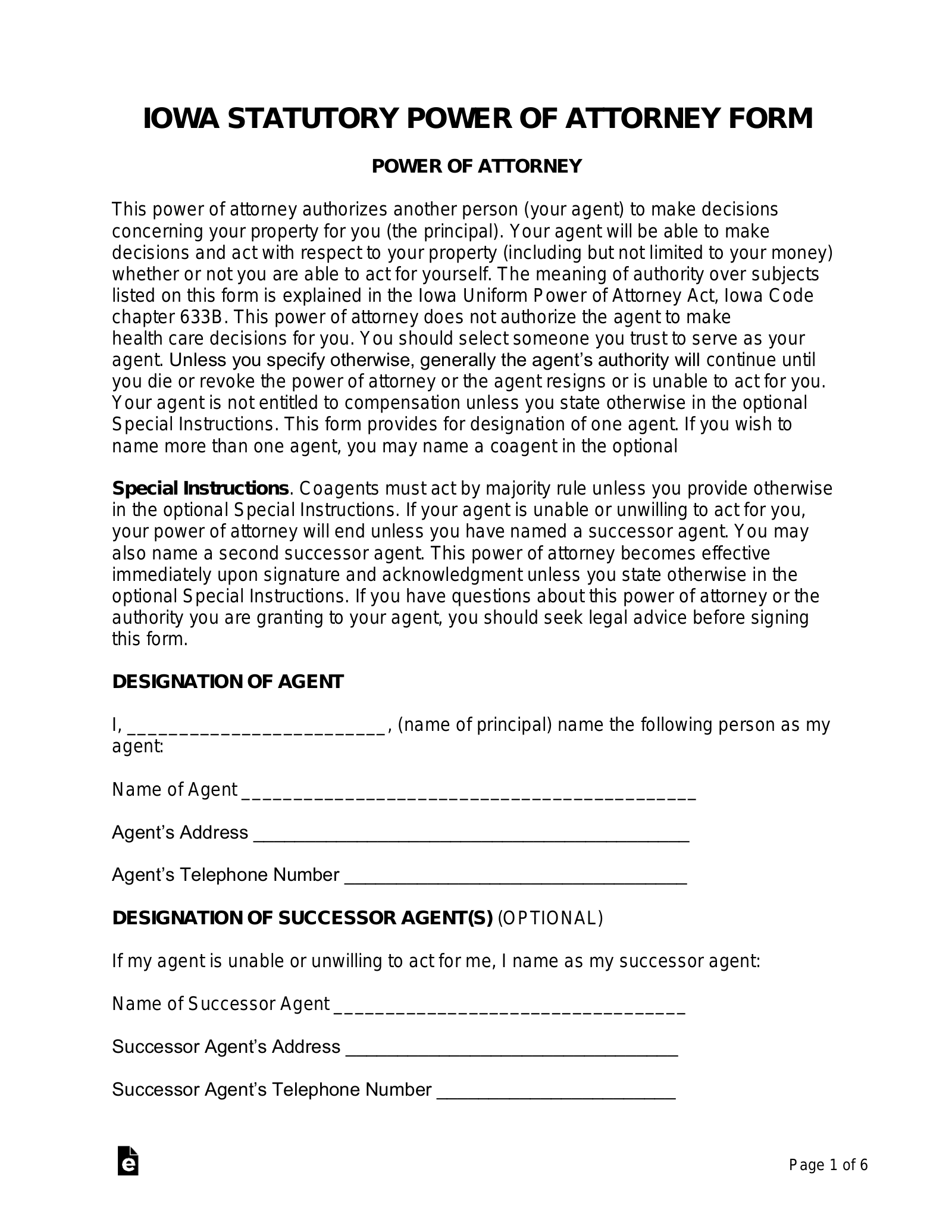Updated March 26, 2024
An Iowa power of attorney lets an individual (principal) delegate financial, medical, or other related matters to someone else (agent) while they are alive. The most common purpose is to prepare for a time when the principal can no longer handle their financial or medical responsibilities themselves. Therefore, a power of attorney allows them to select a trusted individual to carry out actions on their behalf and in their best interest.
By Type (9) |
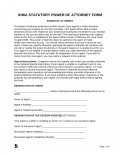 Durable (Statutory) Power of Attorney – Allows a person to appoint someone to manage your affairs, even in the event you become incapable of managing your own affairs. Durable (Statutory) Power of Attorney – Allows a person to appoint someone to manage your affairs, even in the event you become incapable of managing your own affairs.
Download: PDF, MS Word, OpenDocument Signing Requirements (§ 633B.105): Notary public. |
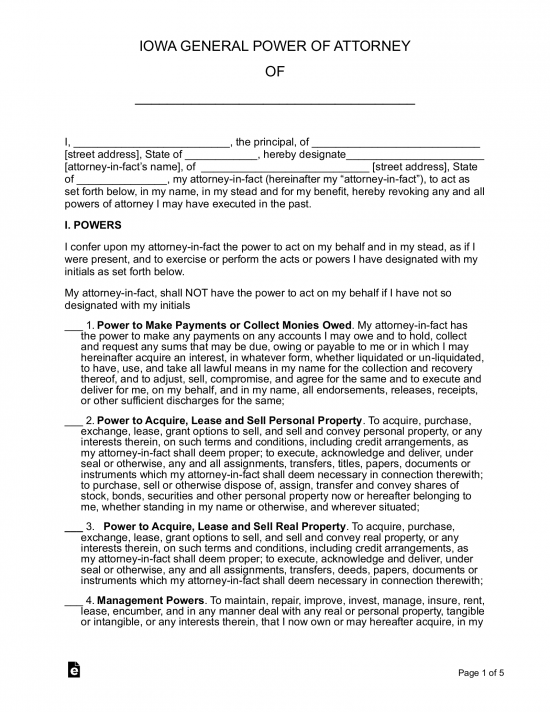 General (Financial) Power of Attorney – This form is similar to the durable POA in that it conveys power to financially manage another’s estate, but it becomes void if the principal is adjudged incompetent. General (Financial) Power of Attorney – This form is similar to the durable POA in that it conveys power to financially manage another’s estate, but it becomes void if the principal is adjudged incompetent.
Download: PDF, MS Word, OpenDocument Signing Requirements (§ 633B.105): Notary public. |
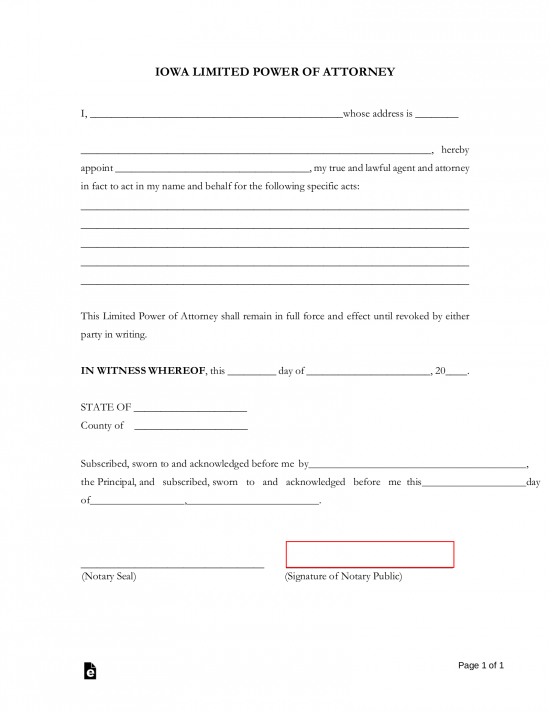 Limited Power of Attorney – This form allows a principal to limit the granting of power to a limited situation or time period. Limited Power of Attorney – This form allows a principal to limit the granting of power to a limited situation or time period.
Download: PDF, MS Word, OpenDocument Signing Requirements (§ 633B.105): Notary public. |
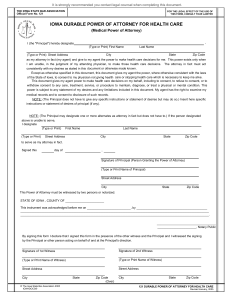 Medical Power of Attorney – This form allows you to choose someone to act on your behalf with healthcare management in the event you are unable to. Medical Power of Attorney – This form allows you to choose someone to act on your behalf with healthcare management in the event you are unable to.
Download: PDF Signing Requirements (§ 633B.105): Two (2) witnesses and a notary public. |
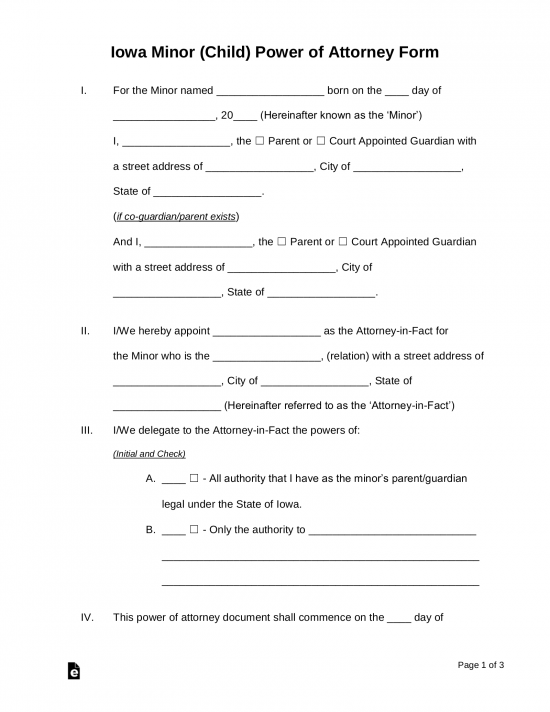 Minor (Child) Power of Attorney – This form is used to appoint someone to act on your children’s behalf in the event you are unable to. Minor (Child) Power of Attorney – This form is used to appoint someone to act on your children’s behalf in the event you are unable to.
Download: PDF, MS Word, OpenDocument Signing Requirements (§ 633B.105): Notary public. |
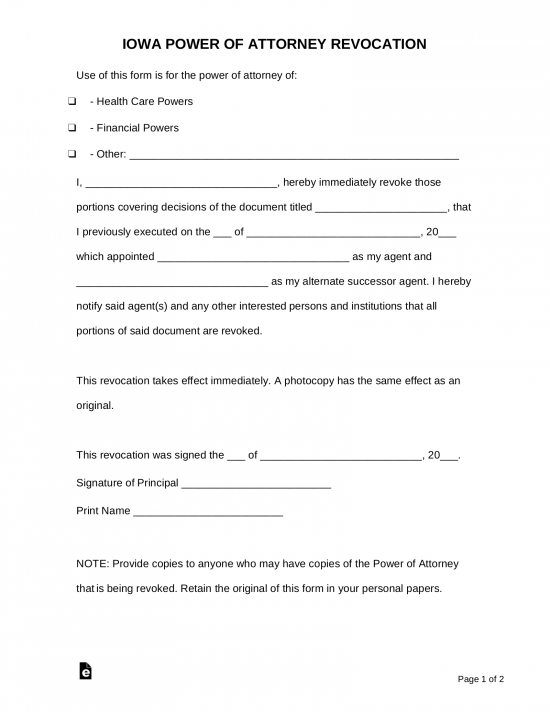 Revocation of Power of Attorney – This form is used to revoke any type of POA that you entered into the past. Revocation of Power of Attorney – This form is used to revoke any type of POA that you entered into the past.
Download: PDF, MS Word, OpenDocument Signing Requirements (§ 633B.105): Notary public. |
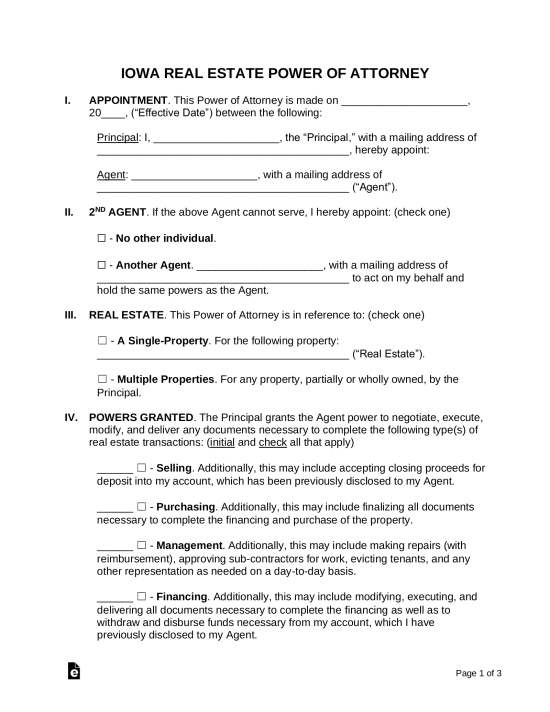 Real Estate Power of Attorney – For an owner of real property to let another person handle the sale or closing. Real Estate Power of Attorney – For an owner of real property to let another person handle the sale or closing.
Download: PDF, MS Word, OpenDocument Signing Requirements (§ 633B.105): Notary public. |
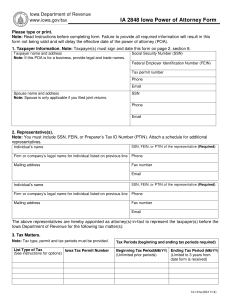 Tax Power of Attorney (Form 2848) – If you need someone to represent you with the Iowa Department of Revenue, use this form. Tax Power of Attorney (Form 2848) – If you need someone to represent you with the Iowa Department of Revenue, use this form.
Download: PDF Signing Requirements (§ 633B.105): Principal only. |
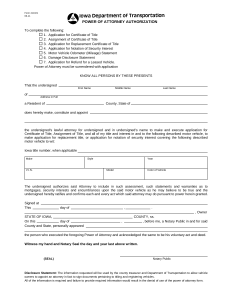 Vehicle Power of Attorney (Form 411021) – This form allows a person to designate a representative to take care of issues related to selling, purchasing or titling a motor vehicle in Iowa. Vehicle Power of Attorney (Form 411021) – This form allows a person to designate a representative to take care of issues related to selling, purchasing or titling a motor vehicle in Iowa.
Download: PDF Signing Requirements (§ 633B.105): Notary public. |

